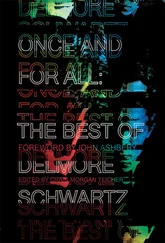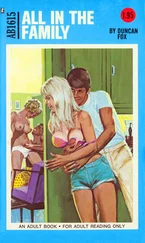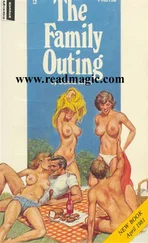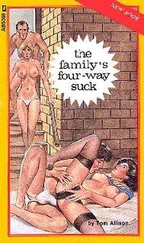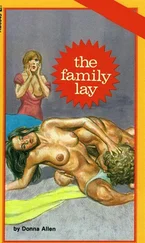“So she’s coming here, is she? To my house? That’s the plan?” Olwen closes her eyes. She knows that capitulation is not far away. It feels inevitable, to both of us. “How do my dogs work in our favor?” she asks.
I pick up a ball and throw it for Good King Wenceslas, who has been lingering hopefully near my feet.
“In her mind, Anne has made me Sandie,” I say. “I think she’s a proud woman—most people are who bury their own very real suffering and deny its existence—they’d find it too humiliating to admit to feeling the pain ordinary mortals feel. Anne’s not going to admit she’s wrong about the identity of her enemy-sister unless she sees a way to change tack without losing face. If I’m not Allisande but I turn out to be someone associated with Allisande—someone, perhaps, who got her dog from Allisande’s kennel . . . Make sense?”
“Too much.” Olwen sighs. “It’s way too rational for Anne Donbavand. She exists in another stratosphere—the woman’s completely loonytunes, Justine. We can’t just open the door to her elaborate fantasy life and stroll in as if it’s a . . . the local pub! It won’t work.”
“So you keep saying. Wouldn’t you rather be able to say, ‘It didn’t work’? What possible comeback will I have then? That’s the way to win the argument: prove me wrong.”
Olwen makes a frustrated noise.
“I promise you, Olwen: I won’t let her hurt you.”
From:AllisandeIngrey@hotmail.com
To:a.donbavand@exeter.ac.uk
Lisette, it’s me -- your sister, Sandie. I need to talk to you. Ideally, I’d like us to meet. I know this suggestion will be anathema to you. I know that for many years you have been afraid of me. But you have nothing to fear from me now. I want to make peace. This bad blood between us has gone on too long.
I would like to invite you to my home in London. Can you come soon? Can you come now -- or tomorrow? If you want to, you can bring someone with you, if you’re worried I might harm you. Bring your husband. I would love to meet him. Bring your whole family if you wish.
In peace --
Allisande
From:a.donbavand@exeter.ac.uk
To:AllisandeIngrey@hotmail.com
Who is this?
From:AllisandeIngrey@hotmail.com
To:a.donbavand@exeter.ac.uk
I am your sister, Allisande Ingrey. Come to London tomorrow. Take the 1007 from Paignton. It arrives at London Paddington at 1338. I’ll send a taxi to meet you and bring you to my house. There are things we need to talk about -- things we should have talked about long ago. It’s my fault that we didn’t and I wish to put that right. Please come, Lisette.
Sending you love and peace --
Allisande
From:AllisandeIngrey@hotmail.com
To:a.donbavand@exeter.ac.uk
Lisette, you haven’t replied. May I assume you will be there tomorrow?
From:a.donbavand@exeter.ac.uk
To:AllisandeIngrey@hotmail.com
I’m not getting in your taxi. Tell me your address and I’ll make my own way there.
From:AllisandeIngrey@hotmail.com
To:a.donbavand@exeter.ac.uk
Sorry, I can’t do that. I’m not putting my address in an email that you could show to anyone. Let’s meet somewhere public. Why don’t I meet you off the train? I’ll wait on the arrival platform. We haven’t seen each other for years, but I’m sure you’ll recognize me. I have short spiky brown hair these days and I’ll be wearing a green coat with a large brooch on it: a boat made out of pearls.
In peace --
Sandie
From:a.donbavand@exeter.ac.uk
To:AllisandeIngrey@hotmail.com
I’ll see you tomorrow.
From:AllisandeIngrey@hotmail.com
To:a.donbavand@exeter.ac.uk
Thank you for agreeing to come, Lisette. This means so much to me. I promise you, you won’t regret it.
Your loving sister Allisande
“Is that my bit done?” Olwen asks. “Can I go?”
“Yes. I won’t be much longer. Half an hour after you, maximum.”
We’re in an internet café near Shepherd’s Bush tube station. I chose somewhere random and far from Olwen’s house. Just to be extra safe, I didn’t want any communication to Anne’s university address to come from a computer or device associated with Olwen. I can’t let her end up in any kind of trouble for doing me a favor.
She stops halfway to the door. “Why did I need to write the emails?” she asks. “You could have done it. You told me what to say, pretty much.”
“Author identification,” I mutter, already busy with my next online task. In my former life as a slave to the TV industry, I made a drama about a forensic linguistic analyst who worked with the police in murder trials. His job was to identify who wrote what when it really mattered—did this murderer write that letter? As part of my research for the program, I spoke to a real forensic linguistic analyst, Professor Malcolm Coulthard from Aston University in Birmingham. He told me it’s frighteningly easy to prove who wrote what if you have enough data to make comparisons.
Anne Donbavand has other correspondence from me. I don’t want her hiring an expert to tell her I also wrote Allisande’s emails. Olwen used words and phrases I’d never use, like “In peace” as a sign-off. And she uses a double-dash as punctuation—I’ve never seen anyone do that before.
“Justine?”
“What?”
“You don’t honestly think Anne believes those emails are from Allisande, do you?”
I glance at the young Asian man behind the counter to check he’s not taking too keen an interest in our conversation. I needn’t have worried. He’s texting someone, with a smirk on his face and busily jabbing fingers. Perhaps he too is pretending to be someone he isn’t. Perhaps we all are: everyone in here—the people to my left and right and all along the row, staring at their screens, enjoying their private, insignificant deceits, or else trapped by them and wishing they could escape.
“Maybe she does, maybe she doesn’t,” I say. “She could be coming tomorrow because she’s convinced or because she’s curious.”
“Or uncertain and confused,” Olwen suggests.
“I hope she’s confused as all fuck,” I say. “If she is, she has only herself to blame. She’s the one who turned messing with other people’s heads into an Olympic sport and made me want to win the gold medal.”
Olwen leans down and peers at the screen. “You’ve set up an email account in Anne’s name. Why?”
“It’s nothing to worry about,” I tell her. “Leave it to me.”
“I should get back to the dogs, I suppose.”
“Yes. Go.” I need to do this next part alone.
Once I’m sure Olwen’s not coming back, I write an email to my former boss, Donna Lodge, with the subject heading “Private and Confidential.” With forensic linguistics in mind, I alter my style as thoroughly as I can, using short, staccato sentences instead of my usual longer ones.
From:a.donbavand@gmail.com
To:Donna.Lodge@factotumproductions.co.uk
Dear Donna Lodge,
My name is Anne Donbavand. I’m a professor at the University of Exeter. I’m also a friend of Justine Merrison. I think you used to work with her. I urgently need to talk to you. It’s about Justine. I’m afraid it’s too sensitive and confidential to put in an email. I can’t risk sending this from my home or work computer. I’ve asked a friend in London to send it from an internet café. I’m in London tomorrow, as luck would have it. Could you meet me at two o’clock? We’d need somewhere private where no one is likely to see us. Also, we can’t be overheard. I’m afraid I don’t know London well. I’ll leave the choice of venue up to you.
Читать дальше

